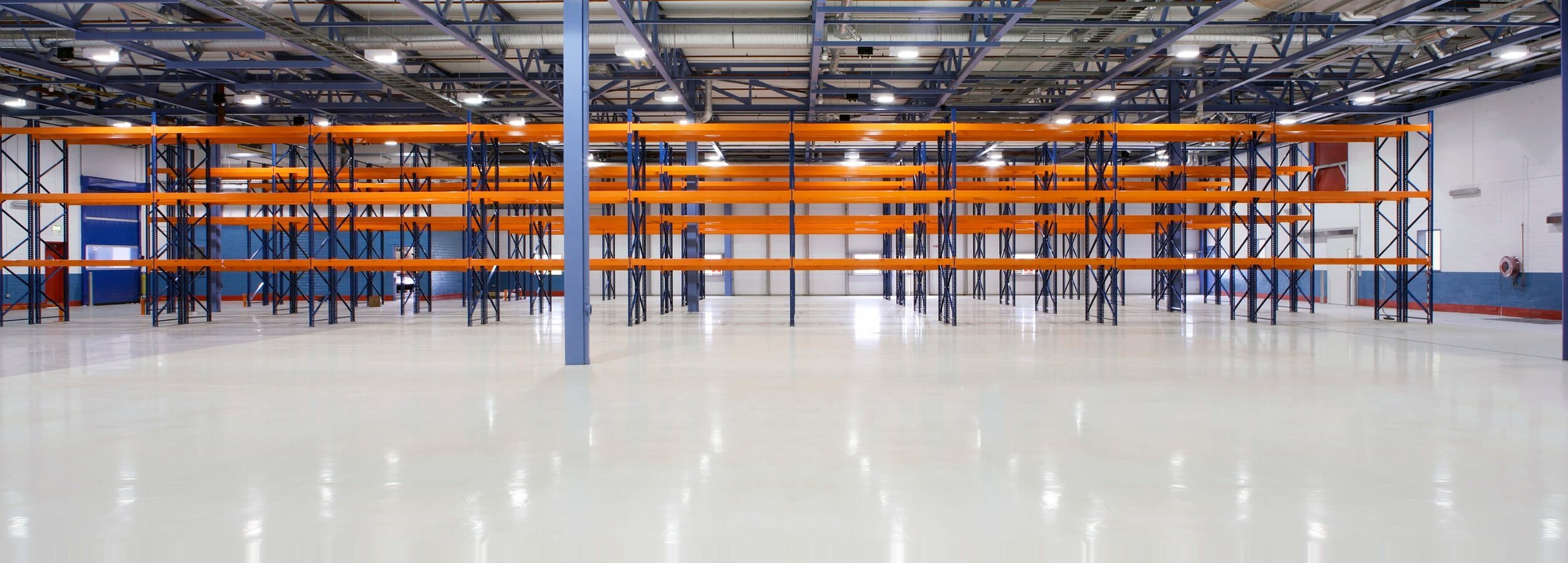
What is resin flooring?
In the simplest form (a resin coating), the ingredients consist of a formulated synthetic resin and separate hardener. As performance demands intensify (typically resulting in an increase in resin floor thickness), the range of ingredients grows to include aggregates, pigments, decorative chips / flakes and in some cases cement powder. The thicker type resin floor types are almost always harder than concrete.
Most resin floors utilise a primer which penetrates into/reacts with the substrate to create a high strength and reliable bond which is essential to the longevity of the floor.
Types of resin flooring
Three main types of resin are used to create majority of resin flooring systems:
Epoxy
Methyl Methacrylate (MMA)
Polyurethane (PU)
The primer is typically followed by a main structural layer, often referred to as the body coat, which creates the bulk of the floor thickness and provides many of the key performance elements such as impact resistance, flexibility and compressive strength, as well as defining the decorative finish of the floor.
Most resin floors will be finished with 1 to 3 seal coats to encapsulate the body coat and decorative element of the floor and provide the final performance characteristics, such as chemical and wear resistance.
Why choose resin flooring?
Resin flooring is most often selected for one of the following reasons:
Protects the substrate from damage
Most resin flooring systems offer far better wear, impact and chemical resistance than the substrates they cover.
Offers unrivaled hygiene and ease of maintenance
Resin finishes are seamless, hygienic and easy to clean; they also stop the dusting of cementitious substrates.
Creates safer working environments
Slip resistant versions of resin flooring offer outstanding performance in demanding production environments and the hygienic seamless nature makes resin flooring ideal for healthcare facilities / pharmaceutical factories etc.
Offers almost unlimited design flexibility
Many resin floors are now available in a wide range of decorative finishes, often bespoke, that can deliver a unique look to even the smallest project, often without a cost premium.
Where can resin flooring benefit you?
Aerospace & Airports: Hangars, assembly areas, paint shops, maintenance buildings, office space, warehousing, terminal buildings, airline catering and transport services.
Automotive: Workshops, MOT Rollers, assembly areas, vehicle respray & preparation areas, maintenance buildings, warehousing and office spaces.
Eduction: General teaching spaces, science laboratories & technology rooms, for preparation zones, kitchens & cafeteria’s, changing rooms, showers & WC facilities, corridors & stairwells, play grounds and outdoor spaces.
Electronics: Electronic environments, clean rooms and assembly areas.
Equine: Stables, walkways, transport boxes, veterinary protection and horse walkers.
Food & Drink: Meat & fish processing, beverages & alcoholic, bakeries & confectionery, kitchens & production lines, freezers & cold stores and food & packaging areas.
Home & Garden: Driveways, paths, patios, garages, sheds, bathrooms, toilets, kitchens, utility areas, conservatories, children’s play rooms and areas.
Leisure: Cinema’s, theatres, museums, outdoor theme & leisure parks, bars, restaurants and nightclubs.
Manufacturing: Production & Distribution centres, warehousing, storage areas, and packaging plans.
Medical: Healthcare, pharmacies, pharmaceutical production, laboratories, clean rooms, service areas, corridors, plant rooms and maintenance.
Offices: Reception areas, offices, canteens, cafeteria, car parks and outdoor areas
Retail: Shopping centres, department stores, supermarkets, fashion boutiques, car parks and service areas.
Social Housing: Internal walkways, entrance areas, stairwells, external landscaping refuge areas and external balconies.
And many more!

